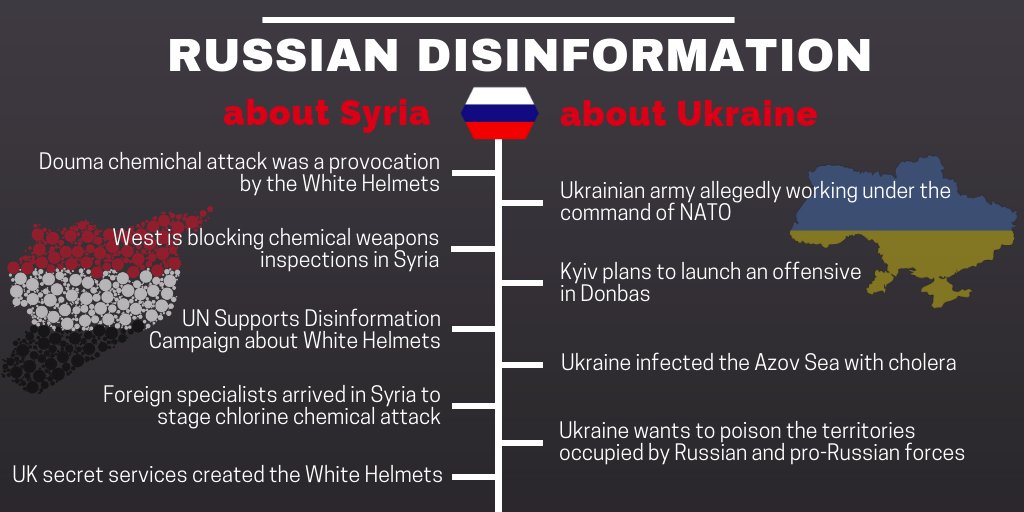In today's #vatnik soup, I'll start an introduction about the Russian information operations (an activity that tries to affect the public opinion and behavior of a society), disinformation and propaganda.
This topic is a broad issue and I'll do it over several threads.
1/10
This topic is a broad issue and I'll do it over several threads.
1/10

The Russian model of disinformation dates back to KGB days. KGB defector Yuri Bezmenov explained already in 1985 the idea of "ideological subversion" or "active measures" as an overt and open operation of manipulation of public opinion.
2/10
2/10
Bezmenov said that Russian "active measures" can be divided into 4 stages: 1) demoralization, 2) destabilization, 3) crisis, and finally 4) normalization.
I can highly recommend watching this interview of Bezmenov as it's still very topical:
3/10
I can highly recommend watching this interview of Bezmenov as it's still very topical:
3/10
The general model for info ops is as follows: 1) sowing fears, 2) fueling mistrust, and finally 3) offering salvation.
Let's use COVID-19 as an example: at the beginning of the pandemic, Russian disinformation was outlining that COVID is highly lethal ...
4/10
Let's use COVID-19 as an example: at the beginning of the pandemic, Russian disinformation was outlining that COVID is highly lethal ...
4/10

... and that you can't trust the government on anything they say. This same idea was then shifted to vaccinations. This disinfo campaign is still going strong: web.archive.org/web/2022091413…
Finally, Russia offered a "salvation" with their own Sputnik V vaccine.
5/10
Finally, Russia offered a "salvation" with their own Sputnik V vaccine.
5/10

In this regard their propaganda was a total failure: it backfired, spread inside Russia and large portion of Russians skipped the vaccines altogether. In Lithuania, most of the COVID deaths were among the Russian speaking population who became victims of Russian disinfo.
6/10
6/10
Another example of a successful info op in the West were the 2016 US elections. Russia's "Project Lakhta" interfered with democratic election process with huge amount of disinformation, spreading mistrust and uncertainty in the society: justice.gov/opa/pr/russian…
7/10
7/10

Troll farm IRA founder Yevgeny Prigozhin denied their involvement and even sued people who suggested this,but in Nov,'22 he admitted that "We have interfered (in U.S. elections), we are interfering and we will continue to interfere. [..] in our own way, as we know how to do."8/10
Trump was the perfect candidate for Russia: his businesses were in Russia & he was conducting the Russian disinformation model, "firehose of falsehood" perfectly: Based on Washington Post's research, Trump made over 30 000 false or misleading statements during his presidency.9/10 

The legacy of his pro-Putin politics can still be seen in the US with politicians like QAnon & Pizzagate advocate Marjorie Taylor Greene (@RepMTG) and agitator and a laughingstock Jackson Hinkle (@jacksonhinklle).
Stay tuned for part two!
10/10

Stay tuned for part two!
10/10


• • •
Missing some Tweet in this thread? You can try to
force a refresh

































